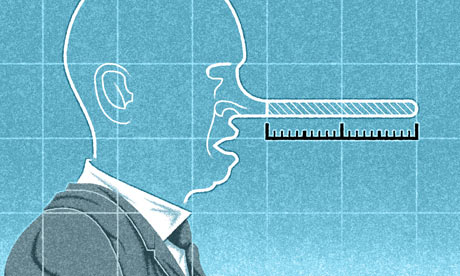Notwithstanding the several privileges and immunities Indian diplomats and consular officers are entitled to, they have a corresponding duty under the 1961 Convention and the 1963 Convention to respect the laws and regulations of the host State
The arrest of Indian Deputy Consul-General Devyani Khobragade in New York and the alleged mistreatment she faced have resulted in a diplomatic row between India and the United States. The Indian stance, after initial assertions that she enjoyed “diplomatic status” and that she should not have been arrested, now appears to focus on the manner of her arrest and her subsequent treatment. The U.S. has sought to justify the arrest on the grounds that the proceedings do not relate to Ms. Khobragade’s official acts, and has asserted that it followed the “standard procedure” in relation to her treatment. On the diplomatic front, India is reported to have initiated some tough measures, including the removal of security barriers around the U.S. Embassy in Delhi.
Question of immunity
At the outset, it is important to draw a distinction between diplomatic agents of states and consular staff. While the 1961 Vienna Convention on Diplomatic Relations covers the privileges and immunities of diplomatic agents, the treatment that consular staff are entitled to is laid down in the 1963 Vienna Convention on Consular Relations. As the Deputy Consul-General at the Indian Consulate in New York, Ms. Khobragade was, at the time of her arrest, a member of consular staff, and not a diplomat.
Unlike the 1961 Convention, which vests diplomatic agents with absolute immunity from arrest, the 1963 Convention states that “Consular officers shall not be liable to arrest or detention pending trial, except in the case of a grave crime and pursuant to a decision by the competent judicial authority” (Article 41(1)). Article 43 of the Convention goes on to vest consular officers with immunity from jurisdiction of the receiving State in respect of official acts.
It is evident that the allegations against Ms. Khobragade relate to her personal and not to her official acts. This means that she is not immune from the jurisdiction of U.S. courts in relation to this allegation. However, this in itself does not render the arrest legal. There may be situations where a country may have jurisdiction to try an offence, but an arrest would violate international law. An Indian domestic law analogy may be one where the police station has jurisdiction to investigate an alleged offence, a magistrate’s court may have the power to try the case, and yet an arrest may be illegal due to various reasons like the lack of a warrant where required, or arrest of a woman after sunset. Similarly, for Ms. Khobragade’s arrest to be legal, in addition to the U.S. possessing jurisdiction to try her for the offence, it needs to be established that the conditions laid out in Article 41(1) are satisfied: (i) that her arrest relates to a “grave offence” and (ii) her arrest was pursuant to a decision by a competent judicial authority.
The 1963 Convention does not define what qualifies as a “grave offence.” However, the rejection of an initial draft that suggested that arrest be restricted to offences that carry a maximum sentence of five years or more indicates that the Convention leaves it to each State to determine, under its own domestic law, whether an offence amounts to a “grave” one. The charges that have been levelled against Ms. Khobragade are categorised as felonies in U.S. law. This may be sufficient to meet the requirement of a “grave offence.”
As per the documents published in The Hindu, her arrest was pursuant to a warrant issued by Hon. Debra Freeman, United States Magistrate Judge for the southern District of New York, a judicial authority. Thus, both the requirements imposed by the 1963 Convention for the arrest appear to have been met.
Even if the arrest was legal, her treatment including handcuffing and a strip-search could amount to violations of Article 41(3) which requires that criminal proceedings against a consular officer be conducted “with the respect due to [her] by reason of [her] official position.”
In sum, the arrest itself appears to be legal. However, a challenge to the manner of the arrest and the subsequent treatment may be tenable.
Retaliatory measures
India has reportedly taken the following retaliatory measures: (i) removal of security barricades around the U.S. Embassy in New Delhi, (ii) withdrawal of airport passes and import privileges (iii) identity cards issued to U.S. diplomats to be turned in and (iv) refusal by several leaders including the Speaker of the Lok Sabha and the National Security Adviser to meet a visiting U.S. Congressional delegation. Some politicians have also suggested prosecution of same-sex partners of U.S. diplomats.
While some of these measures such as refusal to meet the delegation or withdrawing discretionary privileges are merely political in nature and are best left to the discretion of such politicians, other steps like reducing security measures at diplomatic premises and embassies may violate international law, specifically Article 22(2) of the 1961 Convention that imposes a special duty upon the host State (i.e., India) to take all appropriate steps to protect the premises of the mission against intrusion or damage, or disturbance of peace or impairment of its dignity.
Even presuming that the U.S. government is in breach of its international law obligations, it does not warrant retaliation by India, by means which breach international law. International law allows countermeasures (breach of international obligations in response to a breach by the targeted country) only as a last resort and in very narrowly defined circumstances. The only options available, that are viable in international law, are a withdrawal of discretionary privileges, declaration of certain members of the U.S. diplomatic and consular staff as persona non grata (which may be considered too drastic a step) or recalling of Indian consular staff and diplomatic agents posted in the U.S.
In terms of international dispute settlement, India has few, if any, legal options. Recourse to the International Court of Justice (ICJ), the only possible option, is not available in this case (unless the U.S. consents to the same), since the U.S. has not accepted the compulsory jurisdiction of the ICJ.
While the two countries attempt to iron out their differences through diplomatic and legal channels, Ms. Khobragade can, if she and the government of India so desire, avoid further encounters with the U.S. authorities by remaining in the Indian Embassy or the premises of the Permanent Mission of India to the U.N., which cannot be entered by U.S. authorities without authorisation from India.
Obligations of India and Indians
Notwithstanding the several privileges and immunities Indian diplomats and consular officers are entitled to, they have a corresponding duty under the 1961 Convention and the 1963 Convention, to respect the laws and regulations of the host State. Irrespective of how Ms. Khobragade was treated by U.S. authorities, we must not forget the original allegation that she is in violation of U.S. law.
This possible violation of host State law needs to be investigated by Indian authorities. It is imperative that India develop a framework to address misconduct of Indian officials abroad, who have been exempted from prosecution due to consular or diplomatic immunity. Though not an obligation under international law, such a step by India will go a long way as a goodwill diplomatic gesture. It will also ensure quick responses from other countries when pleading immunity on behalf of a national, since there would be an assurance that the offender would face legal consequences in one or other jurisdiction.
Also, India’s latest step of re-designating Ms. Khobragade as a diplomatic agent to the U.N., with a view to bring her under diplomatic immunity, may be viewed internationally as an abuse of the international legal process, given that Section 14 of the 1946 Convention on the Privileges and Immunities of the United Nations (which governs immunities of representatives of the Members to the U.N., since the 1961 Convention is silent on it) expressly states: “Privileges and immunities are accorded to the representatives of Members not for the personal benefit of the individuals themselves, but in order to safeguard the independent exercise of their functions in connection with the United Nations. Consequently, a Member not only has the right but is under a duty to waive the immunity of its representative in any case where the immunity would impede the course of justice, and it can be waived without prejudice to the purpose for which the immunity is accorded.”
(Deepak Raju recently graduated with an LLM in international law from the University of Cambridge. E-mail: deepakelanthoor@gmail.com; Rukmini Das is a research fellow at Vidhi Centre for Legal Policy, New Delhi. E-mail:rukmini.das@vidhilegalpolicy.in)


